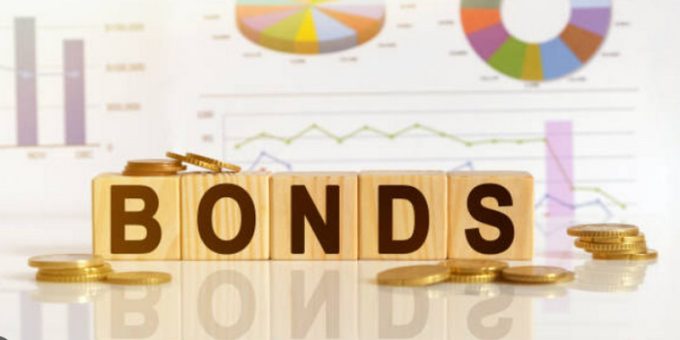
In a diversified portfolio, bonds can play a significant role. Bonds offer minimal risk and moderate reward. The US government backs Treasury bonds, making them a safer investment option than stocks. A bond’s face value represents the minimum amount due upon maturity. Still, you might get more for them in the long run. In any case, early bond redemption lets you get the interest. Discover more about bonds as a type of investment in the section below.
Can you explain series EE savings bonds?
The US Treasury issues Series EE savings bonds, a type of bond, to investors and residents. Series EE bonds, like other bonds, have a face value that indicates how much they will be worth when they mature. When investors buy Series EE bonds, they have the option of a 20- or 30-year maturity.
An investor agrees to the conditions, including the Treasury-determined interest rate, upon purchasing a Series EE bond. The Treasury also offers Series I bonds, which offer a variable interest rate. The inflation rate sets the interest rates on Series I bonds. These investments may or may not be profitable, depending on how inflation rates fluctuate.
For those who bought Series EE bonds before 2005, the fluctuating rates could be a bit of a mystery. If you bought your bonds between 2001 and 2011, you might be wondering why your paper bond has the word “Patriotic Bond” printed on it. The stamping does not affect the value of Series EE bonds issued during this time period.
Should I invest in a Series EE bond?
Your expectations should determine whether Series EE bonds are a suitable investment. Investors in U.S. Treasury bonds, backed by the federal government, would not have to worry too much about defaulting on their bonds if nothing disastrous were to happen. However, bonds do not provide a quick way to become wealthy. You can buy them with confidence, but you won’t see a lot of profit.
When compared to other investment options, the primary selling point of a Treasury bond is its security. You can rest easy knowing that Series EE bonds will pay out the face amount when they mature, and there’s no risk of losing your investment.
The Series EE and other Treasury bonds are a safe bet for investors, even though their returns aren’t as excellent as those of the stock market. Investors appreciate the long-term value of Series EE bond gifts. Investing in Treasury bonds while a child is young is a terrific way to set them up for success in life. If kids decide to utilize the bond funds for college, they can save money on taxes.
You are required by law to include the recipient’s name on any Treasury bonds (including Series EE bonds) that you intend to give as a gift. This is due to the fact that only the original buyer can cash out Series EE bonds, which are not transferable. The person whose name appears on them will receive a 1099-int after cashing them in and will be liable for its gains.
Series EE Savings Bond Valuation Procedure
You can easily determine the value of the Series EE savings bond. You can check the current value of an electronically issued bond by logging into the account from which you purchased it. To access your Treasury Direct account, you’ll need your login credentials. The email account you used to register. The login process will prompt you to enable two-factor authentication after you enter your account number. You will receive an email containing a code that you need to paste into the Treasury Direct passcode field.
Upon completion, you’ll receive a prompt to input your password, enabling you to access your account. In your account, you can see the value and list of all your bonds. When the time comes, you can also sell your Treasury bonds in this manner.
You can also quickly determine the value of older Series EE paper bonds. You can use the Treasury Department’s calculator to find out how much your paper bonds are worth. The series, denomination, and issuance date are all that are required. You can also save the serial number for later use.
Series EE bonds issued between 1997 and 2005 have a variable interest rate that can change during the bond’s ownership. There is a six-monthly adjustment for inflation for Series EE bonds bought after 2005, though.
This article provides a guide to purchasing and selling Series EE bonds
In the past, purchasing Treasury bonds was as simple as walking into a bank. But that was in 2012, and since then, you can only buy these bonds online through Treasury Direct. The process is now considerably simpler, but it’s a shame you can’t get a paper bond from a bank anymore. On top of that, having an online account makes it simple to monitor all of your bonds. You can effortlessly track the current value of your bond and evaluate your selling options in this manner.
The United States Treasury owns and maintains Treasury Direct, a website that handles all bond trading activity. It is highly probable that any other website offering to sell you Treasury bonds is a fraud.
Despite their attractive appearance, historic Treasury bond certificates on eBay lack value due to their non-transferable nature. You can only inherit a Treasury bond from past owners. If you still have any questions about whether your bank will cash or send your paper bonds to the US Treasury, you can inquire about this service. Additionally, there are restrictions on when you can redeem them. For example, you’ll need to hold off on doing so for at least a year following the purchase. If a Series EE bondholder redeems their bond within the first five years, they will forfeit the interest they have accrued up to that point, which amounts to three months.
